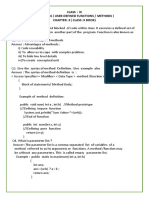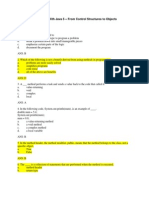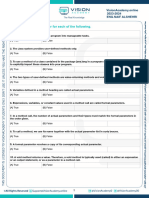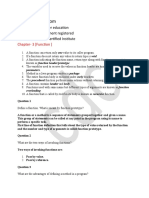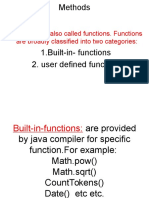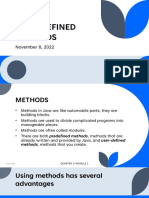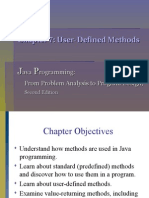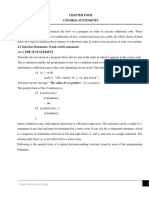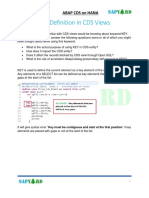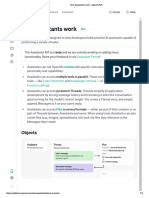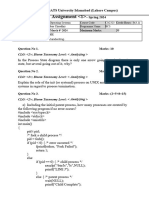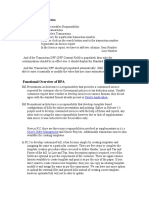0% found this document useful (0 votes)
32 views4 pagesJava Method Concepts and Quiz
The document consists of a series of questions and statements related to methods in programming, specifically focusing on return types, parameters, method invocation, and characteristics of methods. It includes multiple-choice questions, true/false statements, and open-ended questions about function prototypes and method visibility. Additionally, it addresses concepts such as method overloading, scope of variables, and the distinction between pure and impure functions.
Uploaded by
asitakumar25Copyright
© © All Rights Reserved
We take content rights seriously. If you suspect this is your content, claim it here.
Available Formats
Download as PDF, TXT or read online on Scribd
0% found this document useful (0 votes)
32 views4 pagesJava Method Concepts and Quiz
The document consists of a series of questions and statements related to methods in programming, specifically focusing on return types, parameters, method invocation, and characteristics of methods. It includes multiple-choice questions, true/false statements, and open-ended questions about function prototypes and method visibility. Additionally, it addresses concepts such as method overloading, scope of variables, and the distinction between pure and impure functions.
Uploaded by
asitakumar25Copyright
© © All Rights Reserved
We take content rights seriously. If you suspect this is your content, claim it here.
Available Formats
Download as PDF, TXT or read online on Scribd
/ 4








